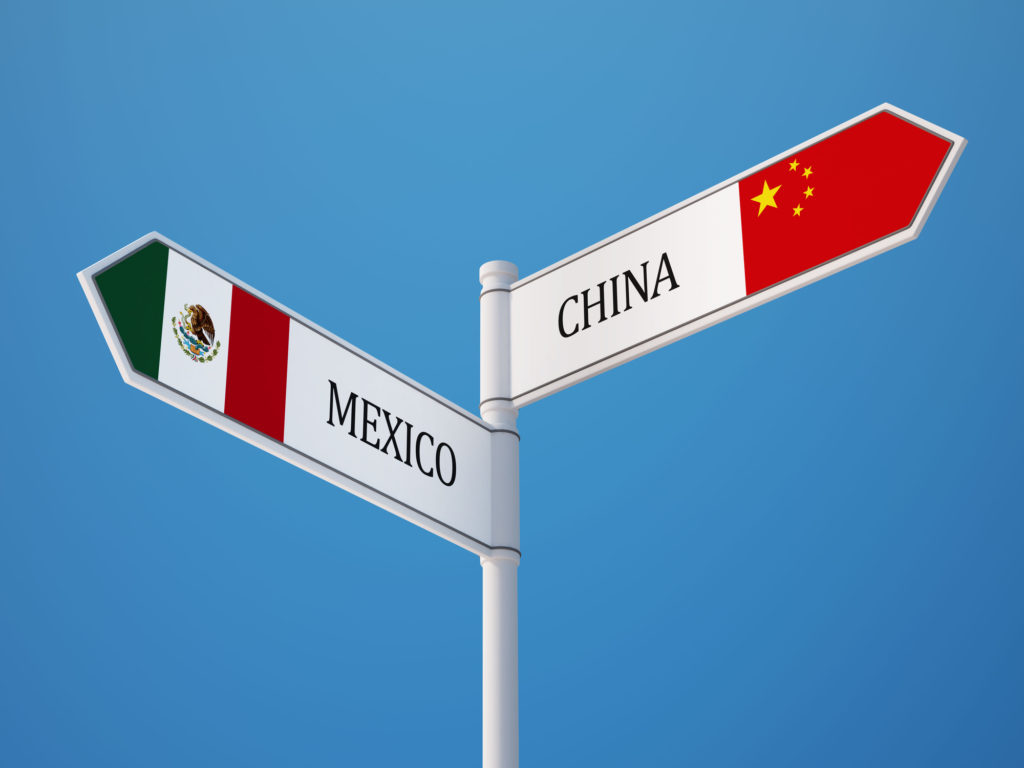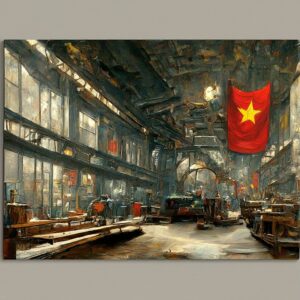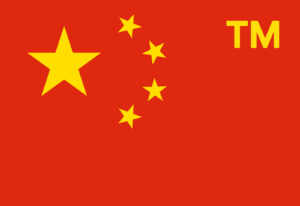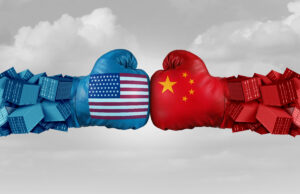Manufacturing in Mexico vs China
A growing number of companies manufacturing in China are looking to move their manufacturing out of China entirely or to reduce their footprint there by adding manufacturing elsewhere. The choice of manufacturing location can profoundly impact cost-effectiveness, logistical efficiency, and overall competitiveness. This post focuses on the transition from manufacturing in China to Mexico, with a specific focus on the concept of “shelter manufacturing.”
This post will highlight the key factors making Mexico an appealing manufacturing alternative to China, with a specific focus on Mexican shelter companies. This post is intended to help you understand what it takes to navigate the intricacies of Mexican shelter manufacturing effectively.
I just returned from ten days in Mexico and much of this post highlights what I dealt with while there. It will outline the features of Mexican shelter companies, the benefits they offer, and the issues companies typically must grapple with when choosing the right shelter manufacturing partner for their Mexico manufacturing needs. It will also touch on the complex legal aspects involved in transitioning manufacturing operations from China to Mexico, highlighting potential challenges and proactive risk mitigation strategies.
Mexico vs. China: My Own Views
But before diving in, I feel compelled to touch briefly on what were for me personally the biggest benefits of Mexico over China. My flight from Houston to Mexico City took two hours, with just a one-hour time difference between the two cities. Houston to China typically takes 18-20 hours and it comes with a 13-hour time difference. The convenience of my Mexico trip meant no jet lag, whereas China trips invariably include that downside.
As for the overall experience, in Mexico my credit cards were taken everywhere and I always had access to unthrottled and uncensored internet, via Wi-Fi in my hotel room and via 5G on my mobile phone (free with my U.S. cell service). In sharp contrast to China, I never had reason to believe that everything I did was being monitored by the government. I also took comfort from the fact that my dollars were going to a U.S. ally, not to funding a country that increasingly seeks to undermine the Free World.
Lastly, I — like so many, just really like travelling in Mexico, and I totally get why Mexico is ranked as the top destination for living and working abroad and China doesn’t even crack the top 25.
Mexico as Manufacturing Powerhouse
The following factors, among others, have made Mexico a leading manufacturing alternative to China, especially for products aimed at the North American market:
a. Geographical Advantage
Mexico’s nearly 2,000-mile (~3,000 kilometer) border with the United States offers it an unparalleled logistical advantage over China. This proximity reduces trucking times to just 2-3 days (versus 3-4 weeks by ship from China), greatly reducing lead times and usually reducing transportation costs as well. One of my clients aptly this by stating that “the ease and speed at which my products move from Mexico to our U.S. customers cannot be compared to what we went through the last four years with China. It’s like night and day.”
b. Commitment to Free Trade
Most Mexican goods enter the United States and Canada without tariffs or duties. Most Chinese goods enter the United States at a 20-25% tariff. It is important that I mention that our international trade lawyers are seeing many companies making the costly mistake of assuming that their Mexico products automatically qualify as “Made in Mexico”, even though they have failed to adhere to strict product country of origin rules. For a deeper dive into the complexities surrounding product country of origin requirements, I recommend you read Nearshoring to Mexico: The Key Questions to Ask, penned by my firm’s lead customs attorney, Robert Kossick, who spent five years practicing international trade law in Mexico.
c. Attractive Cost Structure
Average manufacturing wages in Mexico are 10-20 percent lower than China wages. See As China’s wages rise, Mexico beckons manufacturers and Statista. Manufacturing in Mexico will very likely give you fewer product defects, delivery delays, and incidents of IP theft, all of which reduce overall costs.
d. Strong Workforce
In Manpower Group’s 2022 Total Workforce Index, Mexico ranks #9 globally for workforce availability, cost efficiency, regulation, and productivity, whereas China does not make the top 10. Most American and European companies with experience with both Mexico and China have a marked preference for their Mexican workers over their Chinese counterparts. Echoing this sentiment, an American manufacturing consultant I met with during my Mexico trip told me that he did not think I could “find a company that doesn’t prefer its Mexican workforce over its Chinese one.”
e. Reduced Risks
Mexico has become a lower risk country for manufacturing than China. I will in a subsequent post go into great depth as to why this is the case.
f. Optimal Industries for Mexico Manufacturing
Many with whom I spoke while in Mexico said to me what I so often say to my clients: Mexico is a great place for manufacturing certain products, but it may not be the right fit for others. If your product falls into the former category, Mexico’s manufacturing capabilities can be a significant advantage. Even if your product aligns with Mexico’s strengths, it’s essential to evaluate whether it suits your manufacturing needs and goals.
When considering manufacturing in Mexico, carefully evaluate industry fit. Mexico excels in certain sectors that leverage its strengths, but other industries may not maximize its capabilities. An informed choice requires you align your product and manufacturing needs with Mexico’s advantages.
Mexico has developed robust manufacturing ecosystems across many industries. Some of the most developed sectors leverage Mexico’s skilled workforce, proximity to US/Canada markets, trade agreements, and supply chain integration. Industries like automotive, electronics have longstanding Mexican operations benefiting from these advantages.
Aerospace manufacturing has taken off in Mexico as OEMs establish facilities. Similarly, medical device production has capitalized on available talent and a supportive business environment.
Beyond its core manufacturing, Mexico leads in areas leveraging natural resources and agriculture. Food/beverage thrives on local ingredients and export access to North America. Similarly, petrochemicals and other extractive industries feed Mexico’s sizable chemicals sector.
Consumer goods like apparel also Mexico’s leverage low costs and sophisticated supply chain integration. Mexico ranks highly in global textile/clothing exports. Similar principles apply to plastics manufacturing given its petrochemical foundation.
Mexico’s diverse manufacturing landscape offers opportunities in various sectors but making an informed decision hinges on aligning your product and manufacturing requirements with Mexico’s strengths.
A. Key Features of Mexican Shelter Companies
Mexican shelter companies offer a range of benefits to manufacturers. I break down these advantages into distinct categories for a clearer understanding.
-
- Market Entry Agility. Shelter companies facilitate rapid market entry, often allowing manufacturers to begin operations without the immediate need for a separate Mexican legal entity. We’ll delve into the flexibility this provides and when it makes sense to establish a local entity.
- Streamlined Support. Most Mexican shelter companies are prepared to help you (in whole or in part) with administrative, accounting, compliance, employee hiring and management, logistics support, payroll, and tax matters.
- Fiscal Benefits. Shelter companies can provide exclusive fiscal advantages thanks to Mexican government incentives.
- Local Expertise. Good shelter companies can help you leveraging their knowledge of the Mexican market, buy giving you valuable insights and access to local talent.
- Autonomous Operations. Foreign manufacturers retain control their intellectual property within the shelter company’s framework. As I discuss below, it will be up to you to ensure that your IP is protected in Mexico via registrations and contracts. Mexican shelter companies also do not typically own or control the manufacturing-related assets; these usually remain under the foreign entity’s ownership.
- Infrastructure Assistance. Your Mexico shelter company can help you identify suitable manufacturing locations.
- Tax Implications. Both shelter companies and you, their client, are subject to Mexican income taxes, often credited or deducted based on tax treaties.
- Flexible Contracts. Collaborations can span short-term projects to long-term partnerships. See more below on the ins and outs of Mexican shelter contracts.
- Variable Fee Structures. Mexican shelter company fees are typically linked to employee count or payroll and adjust as employment levels change.
B. Choosing the Right Mexican Shelter Company
Below some of the important issues companies should consider in selecting the Mexican shelter company that best aligns with their specific business needs, such as experience, infrastructure, referrals, and international trade support.
1. Experience & Track Record
-
-
- Experience. A long-established company usually indicates industry stability and expertise.
- Client Base. Who have they worked with before? High-profile clients might indicate credibility and capacity.
- Success Metrics. Look for tangible results. High success rates, low dispute occurrences, and rapid client growth can be promising indicators.
-
2. Infrastructure and Facilities
-
-
- Modern Amenities. Examine the shelter company’s facilities and infrastructure, looking for modern equipment, regular maintenance, and technology upgrades, which indicate their commitment to quality.
- Location. Proximity to key transport hubs, suppliers, and markets can be a logistic advantage.
- Experience with your product or industry. This may or may not matter to you, but when it does matter, it can matter a lot.
-
3. Referrals, References and Due Diligence
-
-
- Authentic Feedback. Genuine client testimonials can give you a good peek into the shelter company.
- Success Stories. Case studies can reveal the company’s approach to problem-solving, project management, and delivering on commitments.
- Due Diligence. Do your due diligence on the Mexican shelter companies you are considering, because it matters and it will be worth it.
-
4. International Trade and Customs Assistance
-
-
- Knowledge of Trade Protocols. Your Mexican shelter manufacturing should not be used as a substitute for top-tier international trade counsel, but it should have sufficient knowledge regarding trade protocols so that it can be a good (and cost saving) partner to your regular trade counsel.
- Documentation Assistance. Your shelter company should be ready, willing, and able to assist your trade counsel in acquiring the necessary certificates and documentation to validate trade agreement qualifications.
-
The Legal Maze When Leaving China for Mexico
Moving your manufacturing operations from China to a Mexican shelter company presents a complex web of legal challenges, involving legal considerations on both sides of the equation — departing China and establishing a manufacturing presence in Mexico.
A. Departing China Legal Issues
Leaving China, particularly when disengaging from manufacturing partnerships or concluding operations, introduces a host of risks and intricate legal challenges and orchestrating such a transition necessitates paying close attention to the legal landscapes. Comprehensive preparations, early engagement of legal counsel in both China and Mexico, and proactive management of legal affairs are indispensable components of a successful transition.
Just as manufacturing in China has become riskier, leaving China has become riskier as well. Protection comes by planning ahead.
Below, I delve into key legal facets that will require your careful attention:
1. Hostage Scenarios and Debt Disputes
In The Single Best Way To Avoid Being Taken Hostage In China, we wrote of how Chinese companies and individuals take hostages in an effort to collect on alleged (and sometimes real) debts or to protest employee layoffs or the closing of a China facility. In that post, we urged companies that closing a facility in China, laying off workers in China, ceasing manufacturing with their Chinese factory, or allegedly owe money to someone in China to stay outside China. Regular readers of our blog know we took this position long ago and have never waffled.
If you are in any sort of dispute or potential dispute with a Chinese company or will be doing anything that a Chinese company may not like (such as ending your manufacturing relationship with them), nobody from your company should go to China if at all possible.
Should travel to China become unavoidable, consider employing professional security services and adopt precautionary measures concerning accommodation and travel plans. Caution is essential when arranging meetings, especially with entities or individuals embroiled in disputes. In some instances, pre-emptive litigation against the Chinese entity can offer a layer of protection, allowing you to argue that any detainment or asset seizure is retaliatory in nature due to legal action. Carrying evidence of your lawsuit while in China can be invaluable.
2. China IP, Mold, Design and Trade Secret Theft
It is imperative that you secure your intellectual property rights, molds, designs, and product specifications before your intentions to leave China become known It is a common practice for Chinese manufacturers to claim ownership to these assets to try to hinder your transition. To forestall such scenarios, ensure that all your intellectual property rights in China are registered and under your clear ownership through written agreements with your Chinese counterparts before they gain insight into your departure plans.
3. Protecting Your Brands, Logos, and Patent Rights in Mexico (and Against China)
Vigilance in protecting your IP extends to the country where you intend to relocate your manufacturing, such as Mexico. There are instances of Chinese entities preemptively registering foreign company brand names, logos, and patents in these countries, intending to impede foreign companies from using their own brand identity in other countries in an attempt to keep them under their thumb in China.
The best way to avoid this problem is usually by registering your intellectual property rights in your target country well in advance of your leaving China, and doing so with a discreet corporate entity name to avoid alerting anyone to your China departure plans. Chinese companies monitor foreign country trademark registries to monitor to try to block their foreign company counterparties from leaving China.
4. Payment Disputes and Financial Fallout
The conclusion of a manufacturing relationship in China often triggers disputes over payments. Chinese manufacturers may assert claims of delayed payments or outstanding debts, potentially resulting in disruptions to product shipments. They also may escalate matters by reporting your company to Sinosure, affecting your ability to engage in any form of business activity in China. See Fighting Back Against Fake (and Real) Sinosure Claims: A Primer.
You must manage your financial affairs diligently and anticipate potential China disputes to minimize their impact on your transition.
5. Real-World Examples of China Legal Challenges
The below are just some of the many things our China lawyers have seen happen to companies that failed to handle their China transition in a way that actually makes sense for China. We have seen each of the below situations more than once and I am providing these scenarios to emphasis the importance of an early and well-thought-out China transition strategy:
- A foreign company informs its Chinese manufacturers of plans to cease using the Chinese manufacturer for its products. The Chinese manufacturer then retains possession of molds and tools, asserting ownership rights. This is a common occurrence, and prevention involves securing a clear China-centric agreement with your Chinese manufacturer, explicitly affirming your ownership of these assets before they become aware of your impending departure. For more on the importance of mold agreements, check out Protecting Your Molds and Tooling When Manufacturing Overseas.
- A foreign company discloses its intention to shift manufacturing from China to Mexico and Thailand, only to discover that someone in China has registered its brand names and logos as trademarks in Mexico and Thailand. This obstacle jeopardizes the company’s ability to manufacture products under its brand identity in these countries. Timely registration of brand names and logos in your destination country can avert this issue. Consider conducting these registrations under a discreet company name to preserve confidentiality and so as not to tip off your Chinese counterparties about your transition plans.
- A foreign company notifies its Chinese manufacturer of plans to cease product production. Shortly after, the foreign company’s products are seized at the Chinese border, based on alleged violations of trademarks and design patents. The foreign company suspects the Chinese manufacturer orchestrated the product seizure by registering its brand names and product designs as trademarks and design patents in China long before acting. China has laws forbidding its manufacturers from registering the IP of those for whom it manufactures, but because it is virtually impossible to prove your manufacturer in Shenzhen had a cousin in Xi’an do the registering, this sort of thing happens all the time. You can prevent this by timely registering your China IP and by making sure your China IP is up to date before anyone knows you may be leaving.
- A foreign company informs its Chinese manufacturer of its plans to discontinue its product manufacturing arrangement. In response, the Chinese manufacturer takes individuals from the foreign company hostage, alleging outstanding debts. These hostage situations are both underreported and prevalent in China. See Commercial Hostages in International Business Disputes. In every instance involving our clients, local Chinese authorities either refrained from intervening or actually assisted the hostage-takers. See also China Exit Bans: You Can Check Out Any Time You Want, But You Can’t Ever Leave
B. Entering Mexico Legal Issues
Transitioning to a Mexican shelter company comes with its own set of legal considerations.
When it comes to legal services, you should view your Mexican shelter company in much the same way you should have viewed your Chinese manufacturer or even joint venture partner. They are your friend on many things but on many other things their interests run counter to your own. Also, they are themselves not lawyers and those that have lawyers are their staff typically do not have terribly good lawyers on their staff. Thus, you should have your own legal counsel to assist you in making sure you are doing everything right on the legal front in Mexico. Among other things, your Mexico legal counsel can (and in most cases) should be assisting you with the following:
1. Finding the Right Mexican Shelter Company
The lawyer you use for Mexico should have its own set of Mexico connections, and that should include Mexican shelter manufacturing companies. They also should be qualified to help you in choosing the shelter company that is right for your business and your situation. Your legal team can also help you in conducting necessary due diligence to help you choose the right shelter manufacturing partner.
2. Negotiating Your Mexico Shelter Manufacturing Contract
Your agreement with the Mexican shelter company should be drafted to protect your interests. You should ensure that the contract defines your ownership of physical assets and intellectual property and includes relevant terms for ending the shelter arrangement. Your independent legal counsel can review and negotiate the agreement to your advantage.
My law firm maintains a checklist of issues to consider in any contract with a Mexican shelter manufacturing company and we see our role as attorneys handling such contracts to be to provide recommendations to our clients regarding such issues. In negotiating the below provisions, we account for our client’s situation and goals and then explain why a particular provision might be anything from absolutely essential to nice to have, but no big deal.
We typically work with our clients to help them evaluate the following key provisions in most standard Mexican shelter manufacturing company contracts:
- Scope of Services: We like these provisions to clearly define the services the Mexican shelter company will provide. Will it be offering a full suite of services, including HR, payroll, customs clearance, and real estate management, or will it just be giving our client the use of a factory and little else? How will the costs of each service be broken out and what exactly will the shelter company be providing within each category. Some shelter companies are excellent at providing in depth contractual explanations of what they will be doing, others, not so much.
- Termination Clauses: What are the specific terms under which either party can terminate the agreement? Are there penalties for early termination? What are the notice periods? What events allow for early termination. It has become popular for companies to put in provisions that allow them to end a contract for the flimsiest of reasons and we are always on guard for that. Shelter manufacturing agreements with rolling renewal terms should be clear on the notice period required if you or the shelter company decides not to renew. One of our jobs as lawyers is to make sure the renewal terms are not written to funnel our client into unwanted extensions.
- Liabilities and Indemnifications: How will liabilities be shared between the shelter company and your business, especially in cases of accidents, product recalls, and legal disputes? Like so much else, some shelter contracts are very explicit on these things, while others are pretty much silent.
- Confidentiality and IP Protection: We work to ensure that there are clauses protecting our client’s intellectual property, trade secret, and other confidential information. Many shelter contracts are vague or silent on this.
- Quality Standards and Compliance: Our lawyers love imposing quantifiable metrics on the opposing party in just about all manufacturing related contracts we review or draft, and shelter manufacturing contracts are no different. It will not help you to have a contract that requires your Mexican shelter manufacturer provide you with a factory and 150 highly qualified employees if the end result of all this is a slew of defective product. Who will be in charge of quality control and what will be the product quality specifications? Who will ensure timely delivery? Your shelter manufacturing should provide you with clear answers to these questions.
- Pricing Structure: Shelter manufacturing pricing options may include a fixed fee per employee, a percentage of payroll, or a combination of both. It’s crucial that our client understand the pricing nuances and carefully consider the long-term implications of its chosen pricing structure, and it is equally crucial that its shelter manufacturing contract clearly reflect the pricing choices made.
- Dispute Resolution: How will disputes be resolved? Will it be through mediation, arbitration, or in a court of law? Which country’s legal system will oversee any disputes?
- Audit Rights: It is usually critical important that our clients be able to easily audit or inspect the manufacturing operations managed by their Mexican shelter company, and yet many shelter manufacturing agreements are vague or silent on this.
- Cultural and Communication Considerations: It’s vital to have open lines of communication with your shelter company and to ensure both parties have clear expectations and ways to address any misunderstandings. A clearly crafted contract written while the parties are both incentivized to reach agreement, can go a long way towards preventing future misunderstandings and litigation. See Good Contracts are Key, Corruption be Damned
- Flexibility: As your Mexico manufacturing business evolves, your needs may change. A well-crafted shelter manufacturing agreement should anticipate these shifts and allow for adjustments.
3. Compliance and Regulation
Complying with Mexican legal and regulatory requirements is essential. Avoiding legal and tax problems in your home country is essential as well. Your legal team can guide you through the nuances of Mexican law and the law of your home country, and thereby help you avoid potential pitfalls and maintain legal compliance. Your shelter company may have a role in this as well and if it does, it is important that they and your legal team work well together.
4. Disputes
Should you run into legal issues related to your shelter company or to some third party (a component supplier or some other third-party vendor, or even the Mexican government or your own country’s government), your shelter company may or may not share your interests and it may or may not be equipped to help you. At minimum, you should consult your legal counsel regarding such matters, as they provide you with an extra layer of protection during potential disputes. They can represent your interests more impartially in negotiations, mediation, or legal proceedings, should they arise. My law firm’s international trade lawyers often have to step in and assist our clients on Mexico-US tariff and duty and other customs issues.
5. Long-Term Legal Strategies
It pays to plan for the long term in Mexico by developing a comprehensive legal strategy that aligns with your business’s growth objectives. Your legal team can help you anticipate and prepare for legal needs and challenges as your business evolves.
The move from China manufacturing to Mexican shelter manufacturing requires a deep understanding of the legal intricacies involved. It is essential to prepare well in advance, engage experienced legal counsel in both China and Mexico, and adopt a proactive approach to managing your legal affairs. Doing so will help you mitigate your risks, protect your assets, and ensure a successful transition to manufacturing in Mexico.
Though partnering with a shelter company streamlines much of the administrative and regulatory complexities of manufacturing in Mexico, your need for independent legal counsel remains paramount and there are compelling reasons why your business should have its own attorney, rather than relying solely on the shelter company’s legal team. The following are just some of those reasons:
- Objective Legal Advice: When you engage your legal counsel, you ensure that your interests are represented independently. Shelter companies typically have their legal teams, whose primary allegiance is to the shelter company itself. Having your attorney ensures that you receive objective legal advice that focuses on safeguarding your specific business objectives.
- Conflict of Interest Mitigation: In some cases, conflicts of interest may arise between your business and the shelter company. For instance, during contract negotiations or in the event of a dispute, the shelter company’s legal team may prioritize the company’s interests over yours. Having an independent attorney minimizes the risk of such conflicts and ensures your concerns are addressed impartially.
- Comprehensive Legal Protection: Though most shelter companies can handle the simple day-to-day legal matters related to operating in Mexico, your own attorney can provide a more comprehensive legal shield. They can advise you on various aspects of Mexican law that do not directly relate to the shelter agreement, such as intellectual property protection, regulatory compliance, and contract negotiations with local suppliers.
- Contractual Clarity: Shelter agreements are complex legal documents, and it’s crucial to understand every clause and implication. Having your attorney review and, if necessary, negotiate the terms of the agreement can help you achieve a more favorable deal. Your lawyer can also ensure that your business’s specific needs and concerns are adequately addressed in the contract.
- Risk Mitigation: Mexico’s legal landscape very likely differs significantly from that of your home country. Your attorney can guide you through the intricacies of Mexican law, ensuring that your business complies with all regulations and avoids potential legal pitfalls. This proactive approach can save your business time, money, and legal headaches down the road.
- Dispute Resolution: In the unfortunate event of a dispute with the shelter company, having an independent attorney becomes invaluable. Your legal counsel can represent your interests effectively during negotiations, mediation, or, if necessary, legal proceedings. They will work exclusively for your benefit, seeking the best possible resolution.
- Long-Term Legal Strategy: Beyond the shelter agreement, your business may have plans for expansion, acquisitions, or further investments in Mexico. Your attorney can help you formulate a long-term legal strategy that aligns with your growth objectives and ensures legal continuity as your business evolves.
Though shelter manufacturing in Mexico can offer you many advantages, having your independent legal counsel is a prudent step to protect your business’s interests comprehensively. Your attorney can provide you with personalized legal guidance, help you navigate the nuances of Mexican law, and ensure that your specific needs and objectives are met. This strategic partnership with legal experts both within and outside the shelter company ensures a robust legal framework and peace of mind as your business thrives in Mexico.
Dependence on the shelter company’s legal team alone comes with various risks, including the following:
- Potential Conflicts of Interest: The shelter company’s legal team ultimately represents the interests of the shelter company. If any dispute arises between your business and the shelter firm, their attorneys would be conflicted.
- Lack of Specialized Expertise: Shelter company lawyers are generalists focused on high-level administrative and employment law matters. They may lack specialized expertise related to your specific industry, international trade agreements, environmental regulations, IP protection, and other key areas.
- Negotiation Imbalance: Without your own legal advice during contract negotiations, the shelter company has a lopsided advantage in drafting agreements that disproportionately favor their interests over yours.
- Oversight and Reviews: An independent legal team can impartially review operations, contracts, compliance status, and other aspects to ensure your interests are fully protected.
Securing your own Mexican legal counsel provides an objective perspective looking out for your unique business needs. They can advise on matters the shelter company’s legal team may deem outside their purview. This dual legal representation structure protects you from potential blind spots.
Experienced cross-border legal experts can also augment shelter company services in areas like navigating Mexican subsidiary setup, international trade agreements, product registrations, IP protection, and dispute resolution. This comprehensive legal support empowers you to maximize the upside of manufacturing in Mexico while minimizing the risks.
Conclusion: Unleashing Mexico’s Manufacturing Potential
With rising geopolitical risks and trade tensions, global manufacturing decisions now carry huge weight. The advantages offered by Mexico, from its geographical proximity to the United States to its commitment to free trade and an attractive wage structure, make it an appealing manufacturing destination.
However, entering the Mexican manufacturing landscape, particularly through shelter companies, requires careful consideration and strategic planning. Choosing the right shelter partner is critical to success in launching Mexican operations.
Ready to explore shelter manufacturing in Mexico? Our team of U.S. and Mexican lawyers, along with our network of shelter partners can guide you through the process. Contact us today to start the conversation.

























